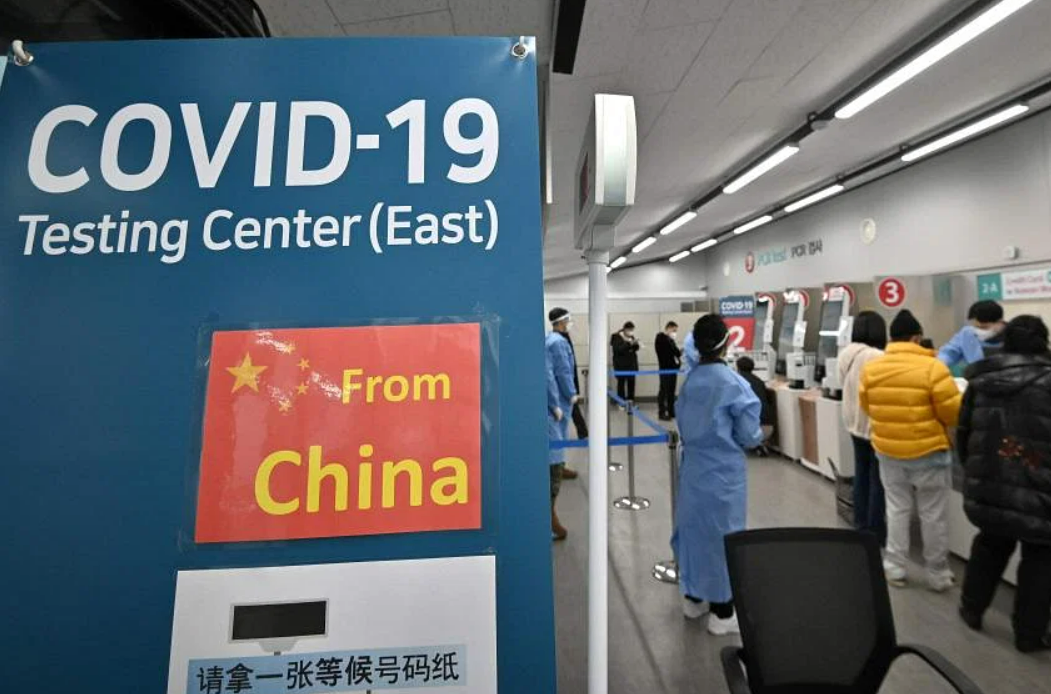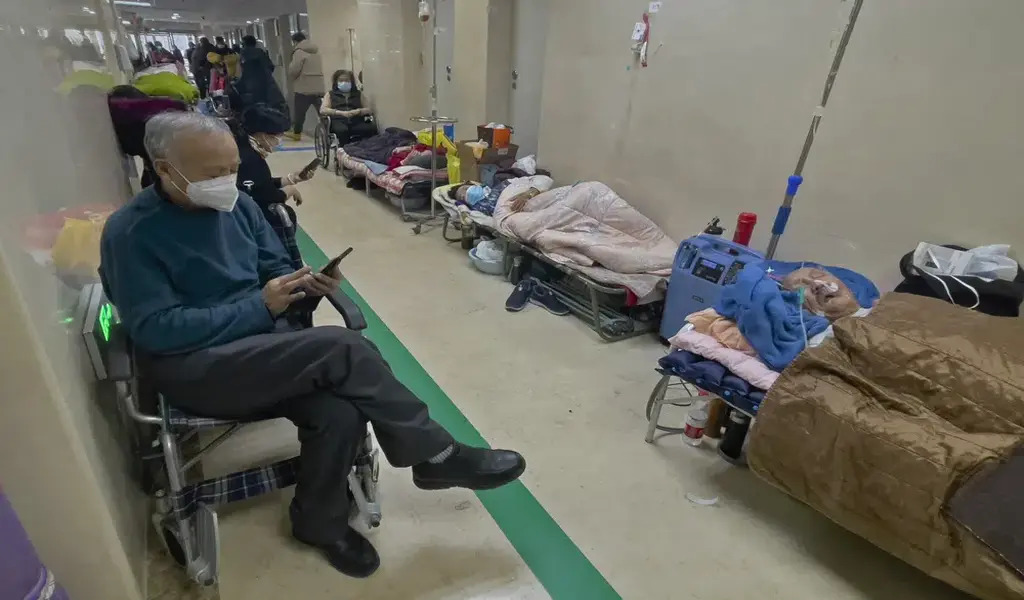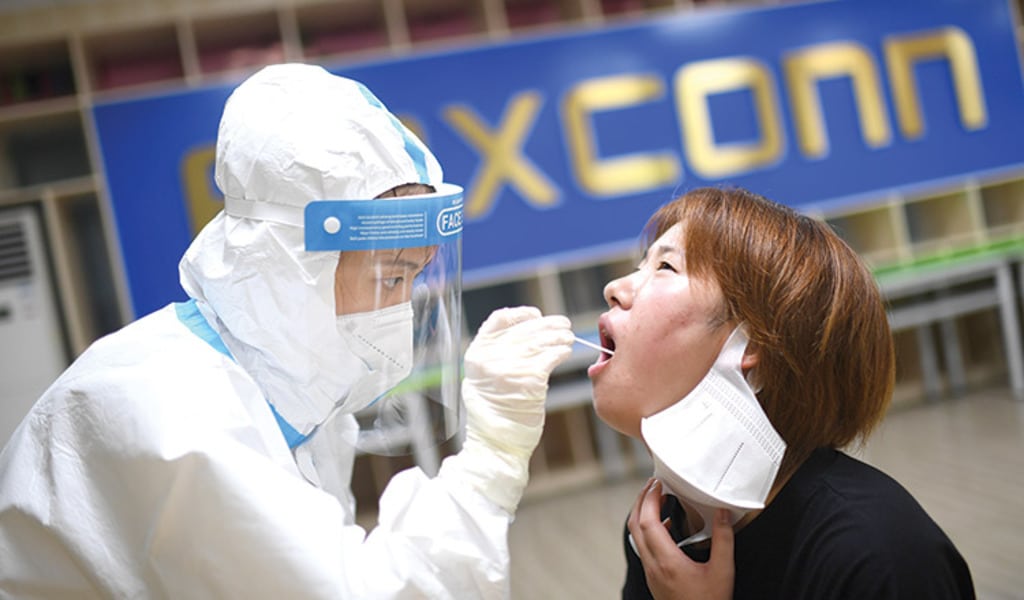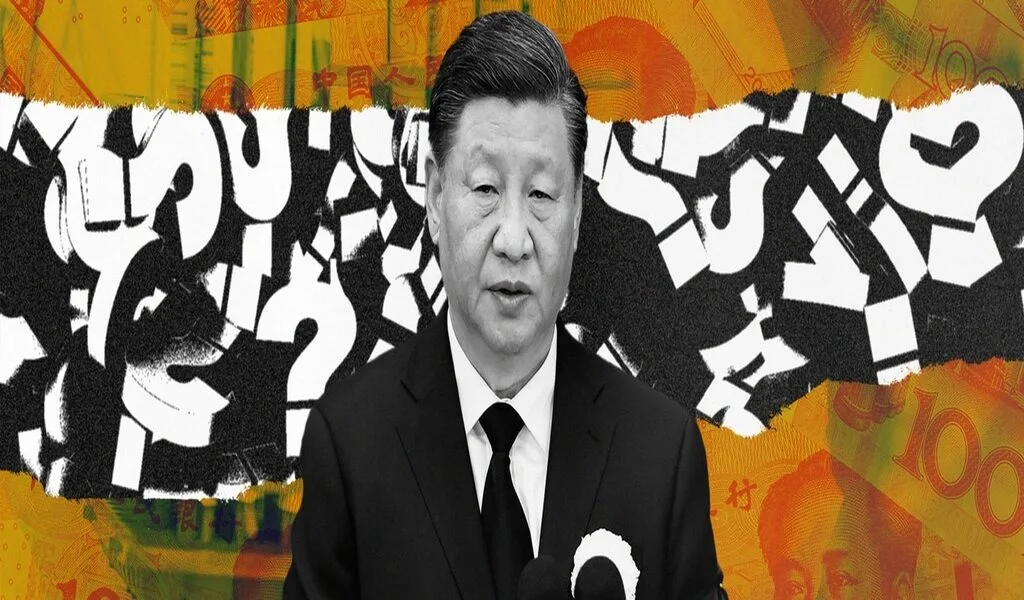News
China Suspends Visas for Japan, South Korea Over COVID-19 Testing

On Tuesday, Chins’s embassies suspended the issuance of new visas to South Koreans and Japanese, ostensibly in retaliation for COVID-19 testing requirements recently imposed by those countries on Chinese travelers.
The suspensions were announced in brief online notices by the embassies in Tokyo and Seoul.
According to the Seoul notice, which was posted on the embassy’s WeChat social media account, the ban would remain in effect until South Korea lifted its “discriminatory entry measures” against China. The announcement included information on tourist, business, and other visas.
Last week, China’s Foreign Ministry threatened countermeasures against countries that announced new virus testing requirements for Chinese travelers. At least ten in Europe, North America, and Asia have recently done so, with officials in China concerned about a lack of information about rapidly spreading virus outbreaks.
It was unclear why South Korea and Japan were singled out, or whether the suspensions would be extended to other countries that have imposed virus testing on Chinese passengers.
The Chinese embassy in Tokyo only stated that visa issuance had been halted. The announcements appeared to apply only to new applicants, with no mention of people who already had visas.

China’s Covid pandemic
South Korea’s Foreign Ministry said in a statement that “our government’s step to strengthen anti-virus measures on passengers arriving from China is based on scientific and objective evidence. We have communicated with the Chinese side in advance and have provided information to the international community in a transparent manner.”
It would be “regrettable,” according to a Japanese Foreign Ministry official, if restrictions were imposed. The official spoke on the condition of anonymity, as is customary.
Withholding visas from South Korean or Japanese business people could stall a hoped-for revival of commercial activity and potential new investment in the aftermath of China’s abrupt lifting of anti-virus controls last month.
Business groups had previously warned that global companies were shifting investment plans away from China because the pandemic controls made it difficult for foreign executives to visit. Over the last three years, a few foreign auto and other executives have visited China, but many companies have relied on Chinese employees or managers already in the country to run their operations.
According to the owner of a South Korean restaurant in Beijing, the announcement forced friends to cancel their plans to visit China. He spoke on the condition of anonymity because he was concerned about the impact on his business. He also stated that he is preparing to renew his Chinese work visa and is unsure if this will be affected.
Chinese Foreign Minister Qin Gang “expressed concern” about South Korea’s measures to his counterpart, Foreign Minister Park Jin, in a phone call on Monday before the visa suspension was announced. “I hope that the South Korean side will maintain an objective and scientific attitude,” Qin said.

Testing upon arrival
China’s action appeared to be motivated by its demands that its citizens be treated equally with those of other countries. A dozen countries have followed the United States in requiring either a negative test before leaving China or a virus test upon arrival at the airport, or both.
“Unfortunately, a handful of countries have insisted on taking discriminatory entry restriction measures targeting China, despite science and facts and domestic reality,” said Chinese Foreign Ministry spokesperson Wang Wenbin on Tuesday. “China strongly rejected this and responded in kind.”
When asked if new visas for South Koreans and Japanese had been suspended, he only said that he had “made it very clear.”
China has been accused by the World Health Organization and several nations of withholding data on its outbreak. A WHO official said on Tuesday that the Chinese outbreak poses no immediate threat to the European region, but that more information is needed.
According to China’s ambassador to Australia, the response of those countries to China’s COVID-19 outbreak was neither proportionate nor constructive.
Xiao Qian told reporters in Canberra that China’s strategy had shifted from preventing infections to preventing severe cases late last year. Countries, he said, should use a science-based response.
“If they’re aimed at China, entry restrictions are unnecessary,” the ambassador told reporters.
South Korea’s once-cordial relations with China, its largest trading partner, deteriorated after Beijing targeted businesses, sports teams, and even K-pop groups to protest the deployment of an advanced US anti-missile system in South Korea.

China’s reversal of Zero-covid policy
Last month, China abruptly reversed its strict pandemic containment requirements in response to what it claims is a changing nature of the outbreak. This followed three years of lockdowns, quarantines, and mass testing, which prompted rare politically charged street protests in Beijing and other major cities.
According to the most optimistic forecasts, China’s business and consumer activity could resume as soon as the first quarter of this year. But, before that happens, entrepreneurs and families are feeling the pinch of a virus outbreak that has left employers short of healthy workers and kept customers away from shopping malls, restaurants, hair salons, and gyms.
Forecasters say Xi’s government’s decision to lift controls that had shut down factories and kept millions of people at home will hasten economic recovery, but it may disrupt activity this year as businesses scramble to adapt.
With the start of the Lunar New Year travel rush, which is set to accelerate in the coming days, China is now facing a surge in cases and hospitalizations in major cities, and is bracing for a further spread into less developed areas. While international flights remain reduced, authorities predict that domestic rail and air travel will more than double compared to the same period last year.






























